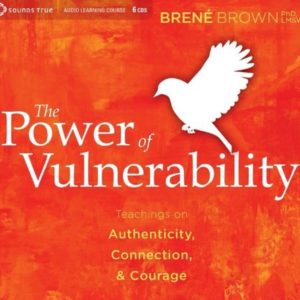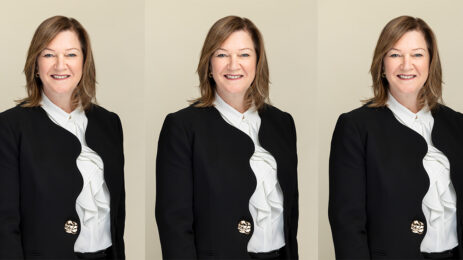Are you struggling to connect more fully with co-workers, clients, attendees at your events—and even your personal relationships? Who wouldn’t like to work and live more fully and effectively? A new book by Brene Brown—a research professor at University of Houston who calls herself a “researcher-storyteller”—lays out the uncomfortable secret to getting the things we want and crave: It may require the painful acceptance that, although we are not perfect, we are still worthy.
Related: How to Transform Your Attendees into Networking Butterflies
“When we dare to drop the armor that protects us from feeling vulnerable, we open ourselves to the experiences that bring purpose and meaning to our lives,” she says.
The Roots of Fear
 In her book, The Power of Vulnerability: Teachings on Authenticity, Connection & Courage, and accompanying TED Talk (watched by more than 36 million people), Brown shares what triggers the disconnectedness that many event professionals encounter in their businesses and themselves: a fear of being left out. Her interviews with hundreds of people as part of a six-year study showed that fear—often experienced as excruciating shame—is common to everyone and is rooted in a belief that we are in some way unworthy of love.
In her book, The Power of Vulnerability: Teachings on Authenticity, Connection & Courage, and accompanying TED Talk (watched by more than 36 million people), Brown shares what triggers the disconnectedness that many event professionals encounter in their businesses and themselves: a fear of being left out. Her interviews with hundreds of people as part of a six-year study showed that fear—often experienced as excruciating shame—is common to everyone and is rooted in a belief that we are in some way unworthy of love.
As a society, we tend to react to this uncomfortable feeling by denying our vulnerability. That is how we became the most in-debt, obese, addicted and medicated adult cohort in U.S history. The problem with this strategy, Brown sagely points out, is that you can’t selectively numb emotion. When you push down fear and disappointment because you don’t want to feel it, you also numb the positive emotions—joy, gratitude and happiness. That leaves us miserable and lacking in purpose and meaning.
Whole-Hearted People
Brown researched how successfully connected people are able to overcome this barrier to intimacy. It kept coming back to one word: “vulnerability.” Yep, to be accepted despite our perceived flaws, we need to own and embrace our complete selves. In other words—live with a whole heart. That takes courage (which is different than bravery, by the way) and compassion for ourselves and others.
Embracing vulnerability means being willing to apologize first, take chances when there are no guarantees and investing in relationships that may or may not work out. To connect, she advises, you must let go of who you think you should be—and be who you are.
“Vulnerability is the core of shame and fear, and our struggle for worthiness, but it is also the birthplace of joy, creativity, belonging and love,” she says.
Proactive Planner Roles
As the managers responsible for bringing groups together, event professionals are uniquely positioned to influence how people see themselves and others. I am happy to report that in my career I have seen management trends shift from cold, compartmentalized interactions to holistic approaches that treat employees as whole people with individual stories, needs and journeys. But it’s a two-way street. While acknowledging the limitations and specialized skills of others, we must be vulnerable about who we are, what we need and what we can offer. The more we take this approach to our work, the more effective we will be at connecting in meaningful ways.
Brown’s conclusions are a call to awake us to our inner potential.
- Own the impact your actions, words and attitudes have on the people around you.
- Admit when you make mistakes.
- Let yourself be seen, deeply seen.
- Practice gratitude and joy. Heck, be fiercely grateful.
- Most important, believe that you are enough.




